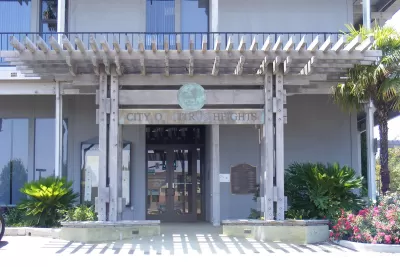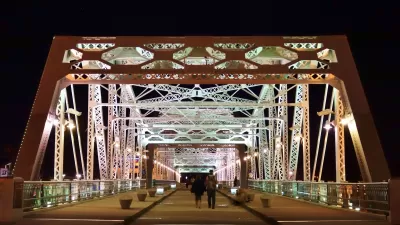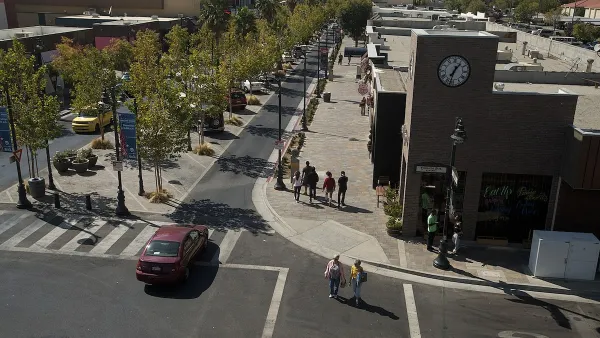A formerly underutilized corridor in Citrus Heights, California is being transformed into a vibrant, walkable street—and stimulating economic growth in the process.

An article from the California League of Cities highlights the successes of Citrus Heights, a town in the Sacramento area where "City officials embrace a transportation philosophy known as complete streets, meaning that mobility for all users, including transit users, pedestrians, and cyclists, is incorporated into infrastructure projects, along with greenhouse emission goals."
As the article states, "Investments in local infrastructure can yield benefits that extend far beyond the curb. A 2021 report found that upcoming spending on federal, state, and local infrastructure will generate nearly $200 billion in economic activity in California alone." Citrus Heights provides an example of how local investments generate further investment and economic development.
For starters, the number of conflict points, such as fewer left-hand turns, has been reduced, which lowered the area’s crash rate by 9%. Travel lanes are also narrower, and the roadway was constructed with the extra protection of vertical curbs, which also reduces the likelihood of a crash.
Additionally, the medians and sidewalks are lined with trees, providing much-needed shade for pedestrians and cyclists, as well as a barrier from oncoming traffic. Utility wires have been placed underground, reducing the number of sidewalk obstructions for pedestrians.
According to the article, the infrastructure improvements along the city's Auburn Boulevard have spurred $23 million in new investment and new businesses, creating hundreds of jobs. The article praises Citrus Heights for its commitment to encouraging infill development and making improvements to pedestrian and bike infrastructure that "provide a sense of community vibrancy that has really been lacking in this corridor."

Maui's Vacation Rental Debate Turns Ugly
Verbal attacks, misinformation campaigns and fistfights plague a high-stakes debate to convert thousands of vacation rentals into long-term housing.

Planetizen Federal Action Tracker
A weekly monitor of how Trump’s orders and actions are impacting planners and planning in America.

In Urban Planning, AI Prompting Could be the New Design Thinking
Creativity has long been key to great urban design. What if we see AI as our new creative partner?

King County Supportive Housing Program Offers Hope for Unhoused Residents
The county is taking a ‘Housing First’ approach that prioritizes getting people into housing, then offering wraparound supportive services.

Researchers Use AI to Get Clearer Picture of US Housing
Analysts are using artificial intelligence to supercharge their research by allowing them to comb through data faster. Though these AI tools can be error prone, they save time and housing researchers are optimistic about the future.

Making Shared Micromobility More Inclusive
Cities and shared mobility system operators can do more to include people with disabilities in planning and operations, per a new report.
Urban Design for Planners 1: Software Tools
This six-course series explores essential urban design concepts using open source software and equips planners with the tools they need to participate fully in the urban design process.
Planning for Universal Design
Learn the tools for implementing Universal Design in planning regulations.
planning NEXT
Appalachian Highlands Housing Partners
Mpact (founded as Rail~Volution)
City of Camden Redevelopment Agency
City of Astoria
City of Portland
City of Laramie





























